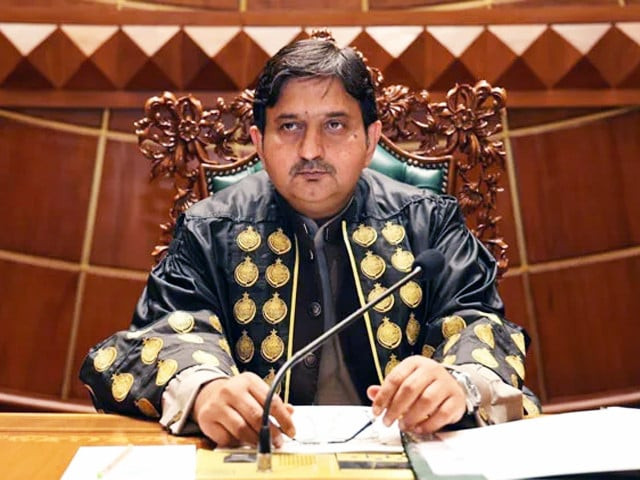The Power of Parliamentary Integrity: A Look at Recent Developments in the Punjab Assembly
In the heart of Lahore, an important decision from the Punjab Assembly has sparked discussions throughout the political landscape. Speaker Malik Muhammad Ahmad Khan recently declared that applications seeking the disqualification of 26 Pakistan Tehreek-e-Insaf (PTI) members over allegations of abusive behavior were inadmissible. Rather than directly ruling on the matter, he advised petitioners to pursue legal routes before returning to his office. This move not only emphasizes adherence to legal procedures but also highlights the crucial balance between accountability and democratic representation.
On June 27, tensions flared when members disrupted Chief Minister Maryam Nawaz’s speech—a trigger for the current controversy. Speaker Khan, referencing Rule 210(3) of the Provincial Assembly rules, emphasized that serious allegations must first be substantiated in a competent court before any disqualification actions could be initiated. His ruling underlines an essential principle: elected representatives must not be cast out lightly. Disqualification, he argued, would disenfranchise voters, effectively silencing the voices of those they represent.
In a detailed ruling, he highlighted the importance of the assembly as “the echo of the people’s will.” This serves as a reminder that politics is about representation and dialogue, not merely procedural victories. He noted that allowing such disqualification applications to proceed could undermine freedom of speech within the assembly, suggesting that a robust discussion—even if contentious—should always be encouraged.
Moreover, Khan stressed the need for better legislative awareness among assembly members. He contended that many lack an understanding of important assembly rules and procedures, which can hamper effective governance. This call for targeted training indicates a proactive step toward improving the legislative framework and upholding parliamentary supremacy.
The Speaker also expressed a commitment to ending political victimization. He called for a spirit of cooperation and dialogue among political parties, highlighting that it’s crucial for fostering a democratic environment. His comments on the need for inter-party discussions underscore a widely-held belief that collaboration among lawmakers can lead to more effective governance.
Critically, Khan didn’t shy away from addressing contentious constitutional provisions. He labeled certain articles as remnants of past authoritarian regimes, used to manipulate the political landscape. His remarks reflect a growing sentiment that qualitative reform is necessary to ensure democracy remains a viable system where elected representatives can serve without fear of unjust disqualification based on mere allegations.
In a landscape where political tensions run high, Khan’s decision brings to light the importance of careful deliberation and respect for democratic processes. His leadership appears rooted in a genuine desire to uphold the rights of the electorate and ensure that laws serve the people rather than the interests of a few.
If you’re interested in delving deeper into the intricacies of political reforms and parliamentary practices, consider following platforms like Pro21st. They’re dedicated to fostering informed conversations around legislative matters, ensuring that the voices of the public continue to resonate within the halls of power. Whether you’re a seasoned political aficionado or just someone curious about the democratic process, there’s always something to learn and discuss!





